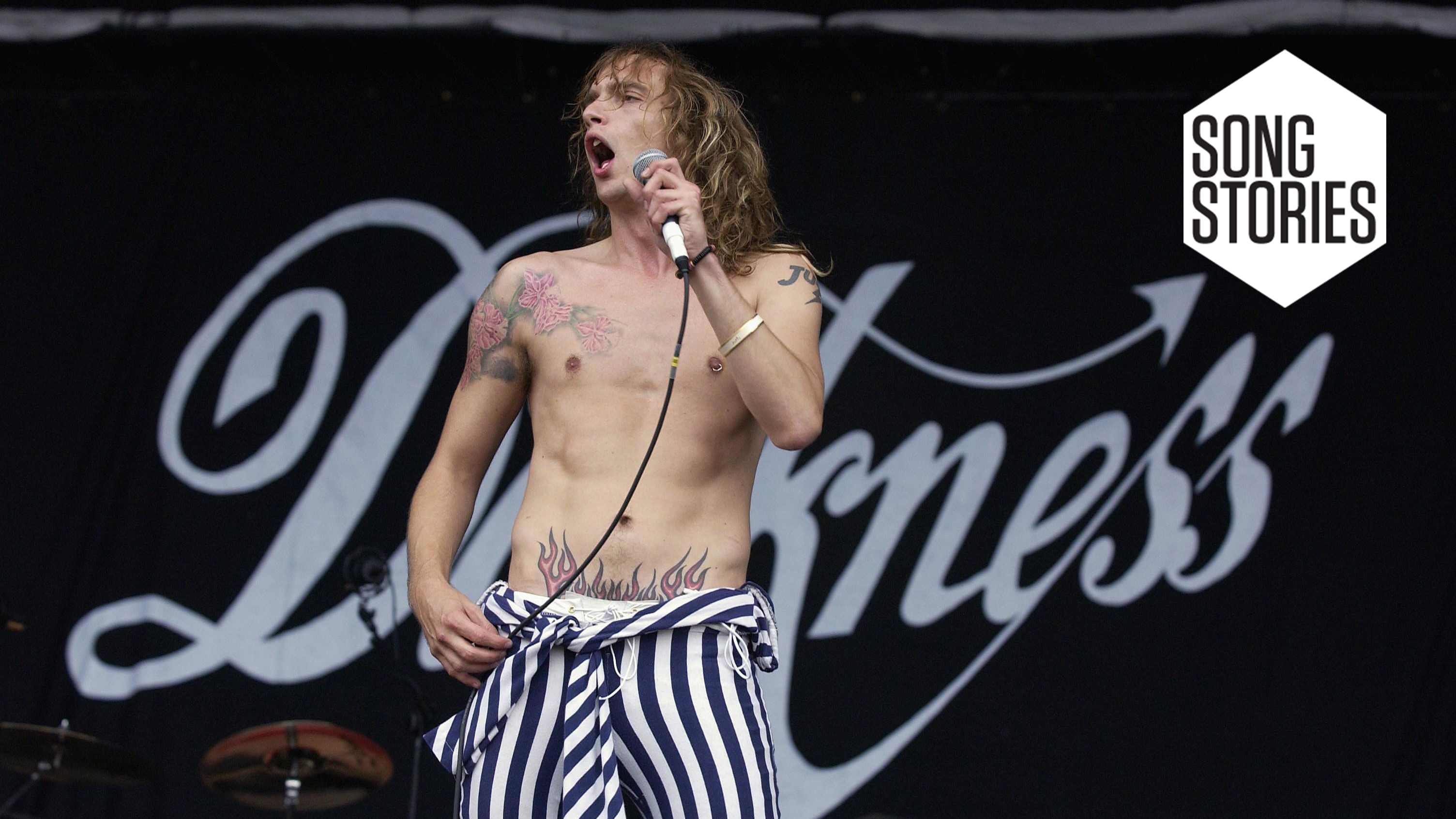
The legend of Black Shuck tells of a spectral hound that roams the Anglian countryside, defiling churches, mauling men and laying a curse on all who behold its flaming eye. Or, as Justin Hawkins puts it in the chorus of this classic track, “Black Shuck! That dog don’t give a f***!”
At the time Black Shuck was written, not many people gave a f*** about The Darkness either. Musically, the Lowestoft rockers were desperately adrift among the fag-end of nu metal, while commercially the collective shrug from London’s A&R community seemed terminal.
By all logical rationale, the band’s debut album, Permission To Land, should have tanked on its summer 2003 release. Instead, it tore to UK No 1, reinvigorated the ‘proper’ guitar solo and – perhaps most impressively of all – did the business across the planet without a single bogus reference to Route 66 or the New Jersey Turnpike.
Written in the band’s native Lowestoft, this was a local album for local people, and never more so than on its ferocious opener. The track comes complete with a monologue about the alleged incident of 1577, when Black Shuck is said to have burst into a Blythburgh church service, ravaged two members of the congregation and left scorch or claw marks on the door (they remain to this day). “You wouldn’t exactly hear Bon Jovi writing about a church in Blythburgh, would you?” asked Dan Hawkins of Total Guitar in 2011.
“I’ve definitely found there’s a lot of truth in that expression: ‘Never forget where you come from,’” added younger brother and Darkness frontman / firebrand Justin. “What set us apart was that town. For us, it really is a geographical foundation, and if you don’t have that framework, then you’ve lost it and you’re just trying to be ‘global’. That was really important, lyrically, with stuff like Black Shuck.”

The Darkness: “Less can be more… because more is too much sometimes”
You suspect Justin is behind the arch oldeworlde turns of phrase (“the parishioners were visited upon by a curious beast / And his eyes numbered but one…”). However, it’s his younger brother Dan who handles most of the animalistic guitar work in Black Shuck, including the muscular low-string bends that open the song and the freak-out lead break that kicks off at 2:20.
“I remember that Dan played the opening riff on my clear Lucite 1969 Dan Armstrong guitar with the Country Bass pickup,” said Justin. “I played the initial stabs on the intro in one speaker while he played the main riff in the other. Then Dan dropped in for the rest of my part, so guitar-wise I’m only on the intro.”
Dan concurred with this version of events: “Justin did the opening stabs that accompany the riff, and I took over from there in both speakers after that point. The rest of the guitaring on Black Shuck is by me…”
With the band still unknown and impoverished, but shooting for a classic British valve crunch, their sound was built around Dan’s trusty Marshall stack. “All the guitars were played through my factory-standard reissue Marshall Super Lead 1959 with 1960AX cabs, using two SM57s on axis,” he recalled of the studio setup. “The first track was the Dan Armstrong guitar, then after the intro it was double-tracked with Dune [the 2000 Gibson Les Paul Standard that Dan uses to this day]. The solo was also on Dune, using an Ibanez Tube Screamer.”
Black Shuck might not be the Hawkins brothers’ most widdly guitar moment, nor was it the hit single that hijacked the radio in that long, hot and spandex-clad summer of 2003. But it’s arguably the most punk-rock moment in The Darkness’s catalogue, and the most representative of the band’s genius ability to juggle universal riffing with oh-so-British reference points.
When they hit the comeback trail after reforming in 2011, The Darkness tended to open with the song (after their time-honoured instrumental b-side Bareback), and Justin admitted it’s one of the high points of his night. “I get to do a lovely dramatic monologue in the middle bit,” he grins. “And every time we play it live, I get to stand in front of the amps and play an imaginary guitar!”







